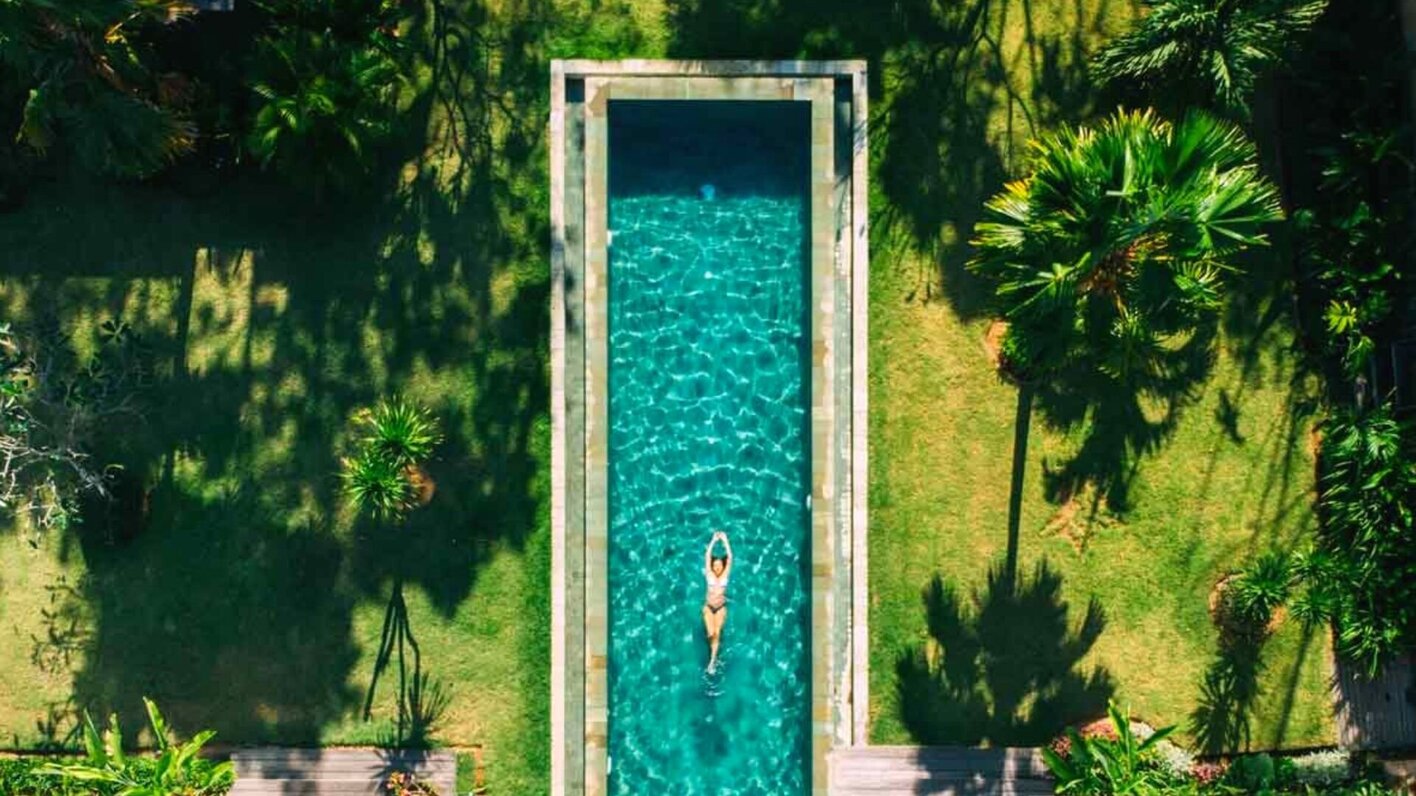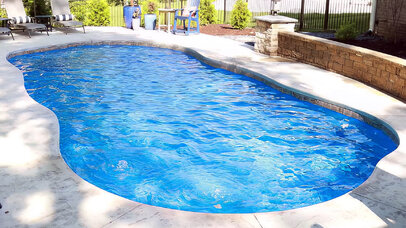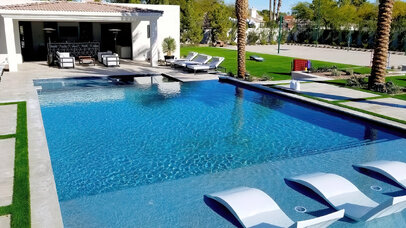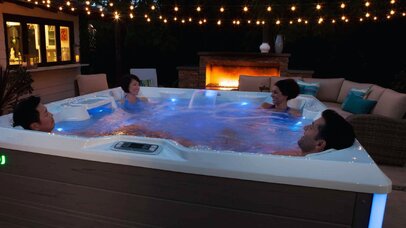Almost every pool owner knows chlorine is essential to maintaining clean and germ-free pool water.
However, excess chlorine in pool water can lead to several health problems. It might change the pool water chemistry, resulting in skin rashes and eye irritation—not something you’d want in your home pool.
Thankfully, there’s a simple solution to the problem: convert your pool to a saltwater swimming pool! Salt system pools have several advantages over chlorine pools. They are also easier to maintain and cost less.
But how do you convert a saltwater pool from a pool with chlorine? This guide will tell you precisely how, so stick around until the end.
Let’s jump right in!
Advantages Of Converting A Chlorine Pool To A Saltwater Swimming Pool
Before we discuss converting your standard pool to a saltwater swimming pool, let’s consider some of the advantages of saltwater swimming pool conversion. This will help you understand the need to undertake the process.
1. Need For Lower Maintenance
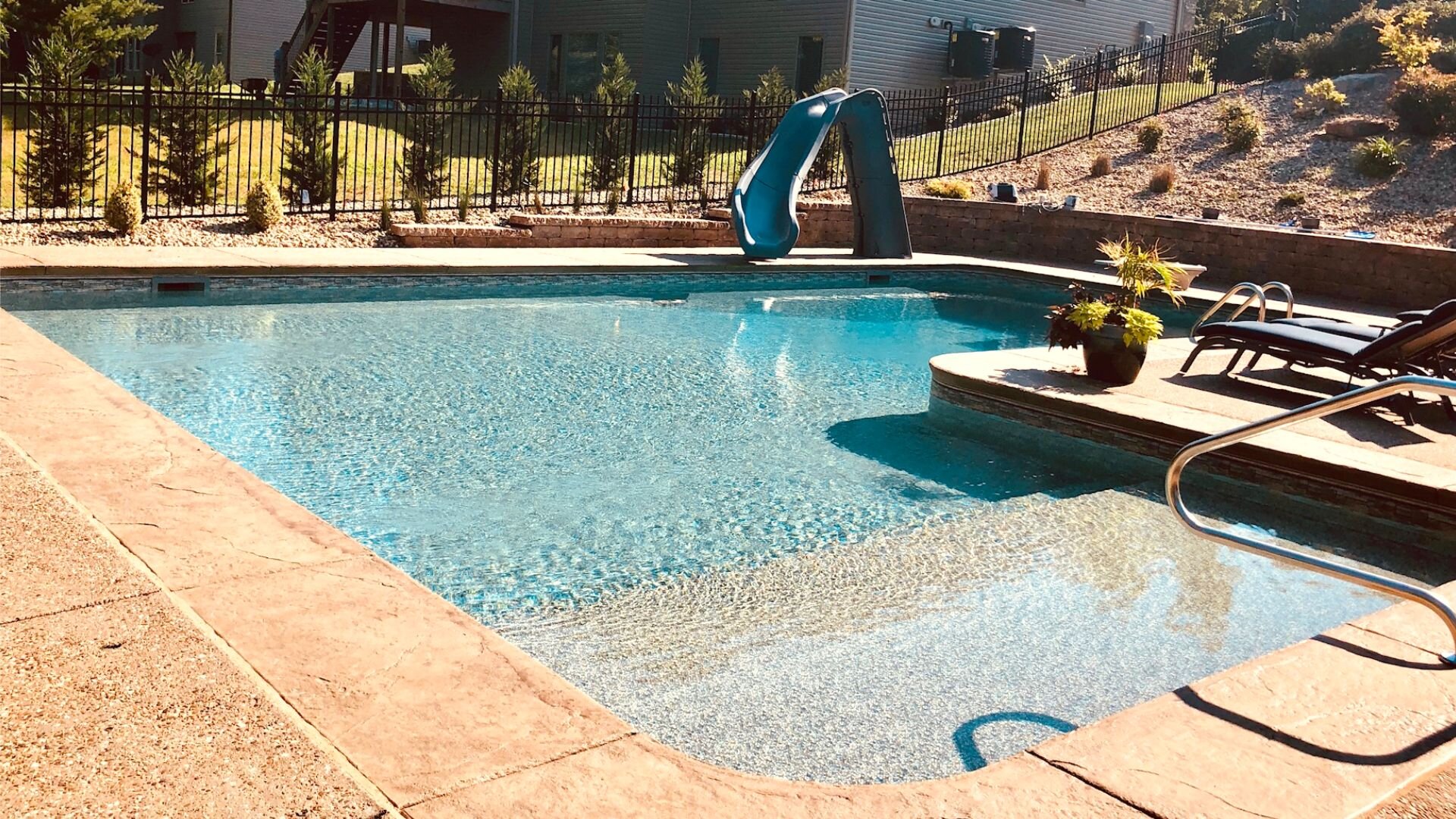
A saltwater pool doesn’t need as extensive maintenance as traditional chlorine pools. This is because all the required chlorine in saltwater pools comes from pool salt. This chlorine is generated naturally in the water after the pool salts split apart. And even though pool water loses some chlorine and salt concentration over time, this process takes place much slower than in a chlorine pool.
As a result, you don’t need to keep adding excess chlorine to a saltwater pool, as is required with a traditional chlorinated pool. Also, pure chlorine is a hazardous material and can lead to accidents if proper safety measures are not followed. Handling pool salts is a much safer alternative and can be done quickly.
However, it’s important to note that pool salts are also corrosive, so you must ensure your pool liner can withstand saltwater systems.
2. Ensures Softness Of The Water
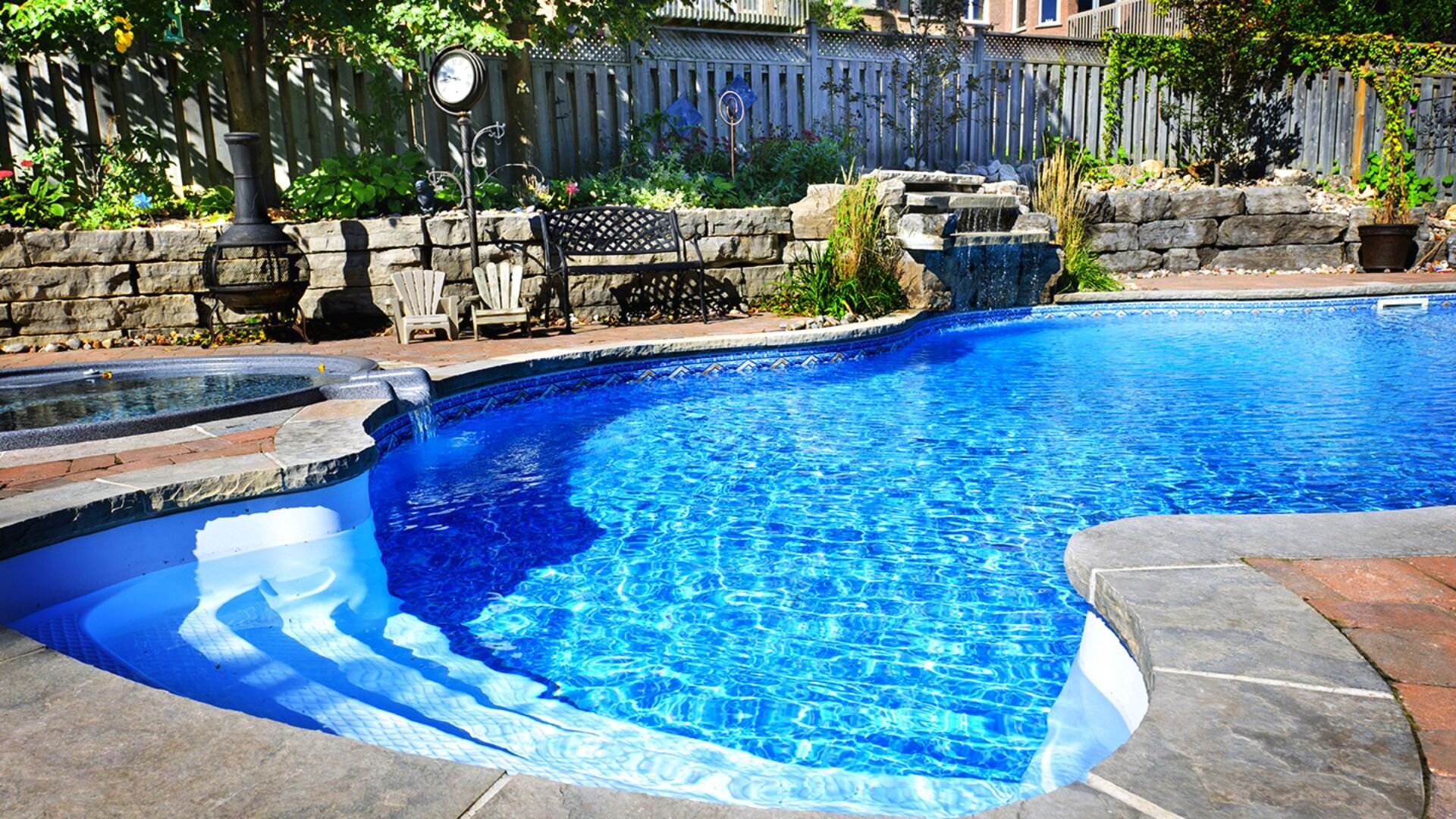
When people hear of saltwater pool systems, they quickly conclude that a saltwater pool will have “salty water” like the oceans. However, this is a misconception; saltwater pools don’t taste salty but are closer to fresh water.
In fact, according to US Geological Survey reports, the salt concentration of a saltwater pool is just about 10% of the salt content of ocean water. This means a saltwater pool has softer water than the oceans, leading to a much more pleasant swimming experience.
3. Lower Upfront Costs
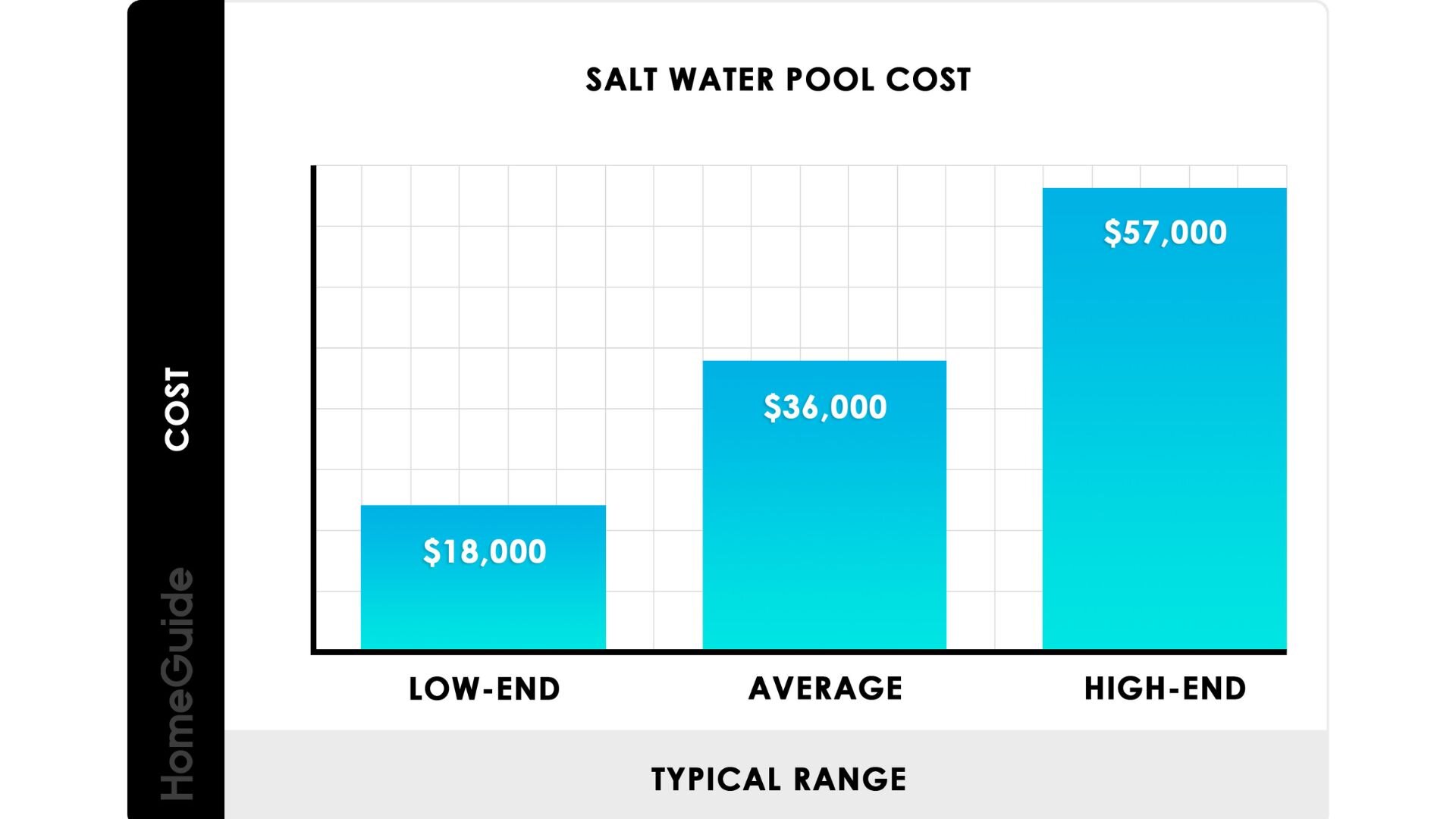
Money matters. The exact cost of converting to a saltwater pool depends on multiple factors, like the size of the pool and the kind of salt chlorine generator you’re planning to use. However, converting commercial and home pools to saltwater variants usually costs a few hundred dollars.
Once you add the lower cost of pool chemicals compared to a chlorine pool, it becomes much more affordable. The most expensive part of the process is the salt chlorine generator, which needs professional installation. Besides that, you’ll only need to invest in the pool salts, which aren’t that expensive in the first place, and you won’t need to buy them very often.
Overall, the advantages of converting to a saltwater pool are much more significant than those of keeping an old-fashioned chlorine pool.
How To Convert To A Salt Water Pool
Now that you know about the benefits of getting a saltwater pool, let’s go through the detailed steps of the conversion process.
1. Examine Your Existing Pool Equipment
The first thing you’ll need to do for the conversion is examine your pool equipment and parts. This should include thoroughly inspecting pool pipes, interior lining, the pool pump, and any smaller equipment in touch with or close to the water. This is essential to ensure they won’t be damaged during the saltwater pool conversion process.
Once you’re sure all your existing equipment can withstand the process, you can proceed to the next step.
2. Clean The Pool Water
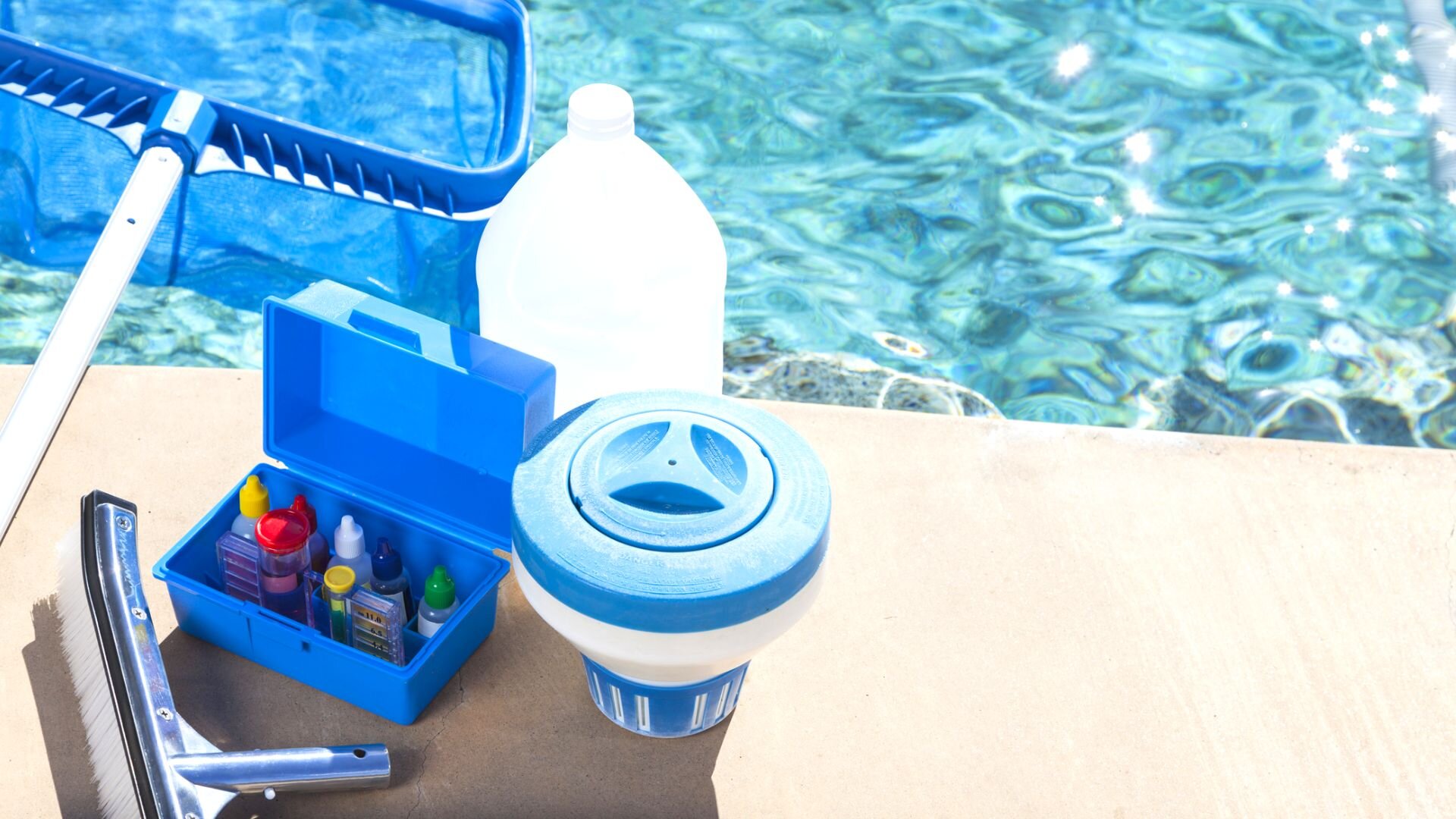
In general, pool cleaners are suitable for use with chlorine, so you won’t need to change the water before converting from a traditional chlorine pool. Remember that certain cleaning products might not suit your existing chlorine pool. If you’re using any such product ( polyhexamethylene biguanide), it’s best to drain the water or burn it out using excess chlorine.
3. Balance The Pool Water

Now it’s time to balance your pool water chemistry; we recommend you go about this process by balancing parameters in the following order:
- Chlorine
- Alkalinity
- pH
- Stabiliser
- Calcium hardness
- Metal content
Usually, it will take multiple days for the pool water to balance out. But this time, allowing the water to circulate and balance evenly is necessary to adjust to your salt system.
4. Select A Salt Water Chlorinator
The next step in converting to salt water is selecting a suitable salt chlorinator. The saltwater chlorinator must be large enough for your pool, durable for prolonged service, and affordable.
The best way to select a saltwater chlorination system is to talk with other pool owners who have converted similar swimming pools to a salt system. Reading online reviews and comparing features from different pool maintenance brands is also essential.
5. Install The Chlorinator
Once you’ve settled on a chlorinator, installing it will be as follows: We recommend undertaking this process yourself only if you’re entirely confident. Otherwise, it’s best to contact pool plumbing professionals adept and experienced in installing salt systems. Before deciding, it would help to thoroughly review the manual specifications of the salt chlorinator system installation.
6. Add The Salt
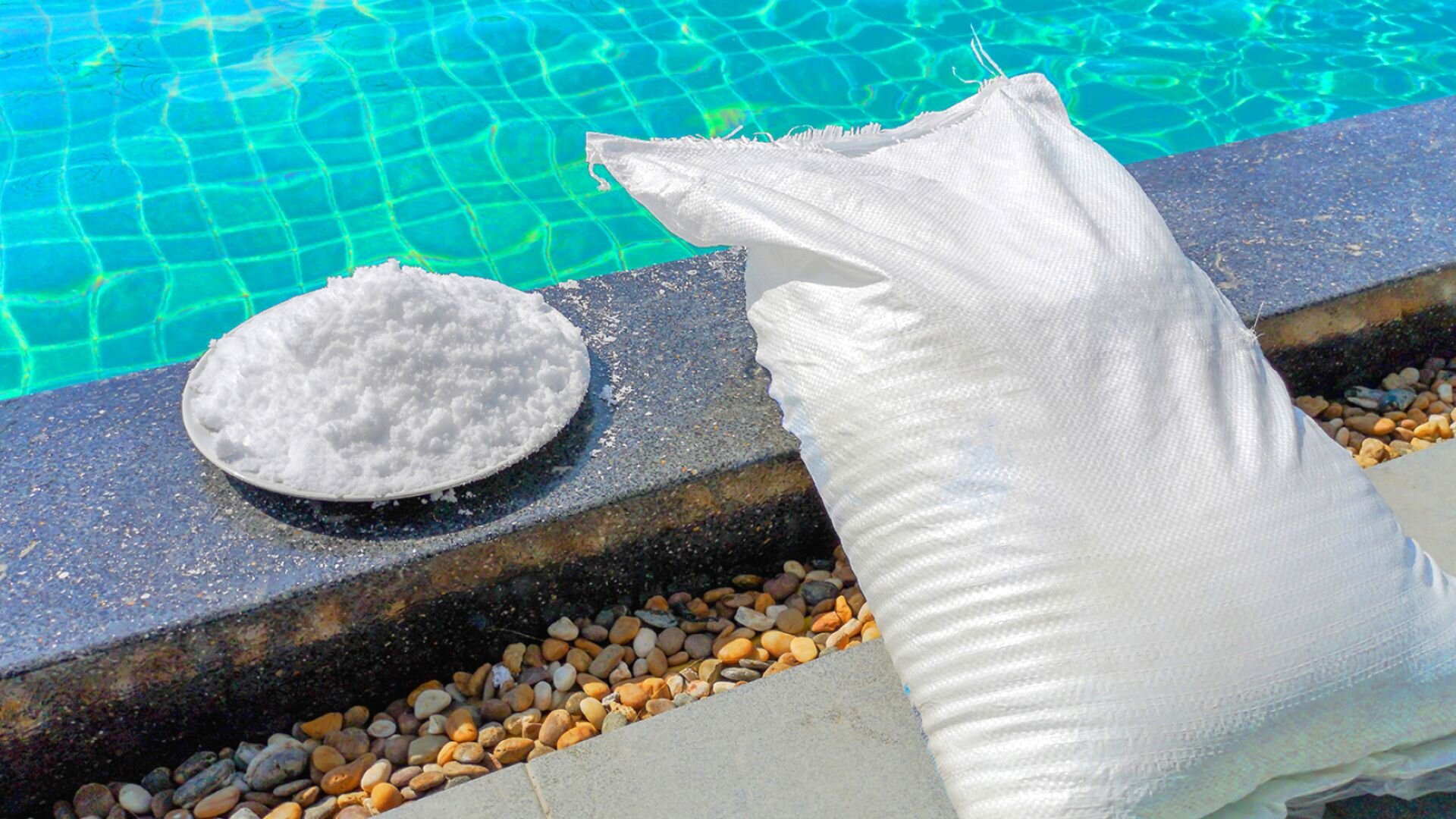
Although listed here, you may need to perform this step before installing the saltwater chlorinator. This is as simple as pouring the pool-grade salt into the water; ensure you use the right amount for your pool volume. Multiple online resources can help you decide how much salt to use and how to maintain salt levels.
When choosing salt, you can select mined salt, solar salt, or mechanically evaporated salt. Make sure you choose the right crystal size for your chlorinator. Also, ensure you add the salts in the pool’s shallow end to protect pool products.
7. Test The Pool Water
Finally, you need to test the pool water immediately after the conversion process and after a week of installing the saltwater system. Your salt pool should have stabilised within this time and reached the desired concentration. If you find some numbers off, your system might be wrong.
If the salt pool water concentration is too high, you might need to replace some water. On the other hand, a lower concentration will require adding more salts.
Transform Your Regular Pool Into a Salt Water Pool
It’s essential to clean your pool chlorinator at least after every three months. Most saltwater pools require weekly cleaning of smaller equipment. If you feel the need, you can use hydrochloric acid only if your salt cells need it.
And that’s it! You’ve successfully converted your regular chlorine pool to a new saltwater pool. The process is simple, but the nuances might not be known to you as a newbie. In that case, we recommend calling a professional pool service company like the Pool Co. to take care of the chlorine pool to saltwater pool conversion process for you.
The Pool Co. water experts can help convert your home or commercial chlorine pool to a saltwater pool without the hassle and at affordable costs.
